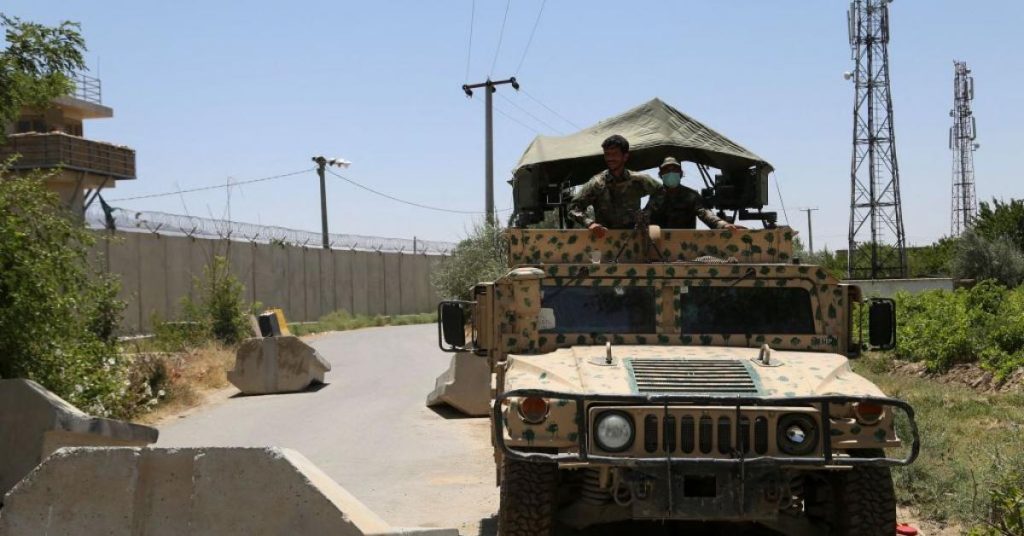President Trump issued a blunt warning about Bagram Airbase, and he did it in a way that leaves no room for ambiguity. This is not just about a patch of concrete or a run-down hangar; it is about American credibility and the hard lessons of a bungled withdrawal. Republicans view the loss of Bagram as a symbol of strategic failure that must be addressed decisively.
Bagram was more than a name on a map for two decades of counterterrorism operations, logistics and intelligence work. Constructed by the Soviets, expanded and fortified by NATO and American forces, it became the largest U.S. military installation in Afghanistan and a vital hub for airpower and medical evacuation. Its fall to the Taliban after Afghan forces surrendered left a bitter aftertaste and opened questions about deterrence and the cost of retreat.
That surrender exposed a painful truth: when the United States retreats under pressure or indecision, adversaries are emboldened and allies are shaken. The Republican stance is simple — strength, clarity, and preparedness win the day, and giving up strategic assets without a fight sets a dangerous precedent. Trump’s message taps into that instinct: recover what we built or face consequences that are avoidable with leadership.
Why Bagram matters
Bagram sits on a plateau that dominates the main highways and air corridors of northeast Afghanistan, and control of it has real operational value. From there, forces could project power, support partners, gather intelligence and protect U.S. personnel in the region. Losing it removes a layer of tactical flexibility and sends a signal to friends and foes about American resolve.
Beyond the military details, there is the human cost. Troops, contractors and interpreters worked under hard conditions for years to hold that position and to protect American lives and interests. Republicans argue that abandoning such positions without robust contingency plans dishonors their sacrifice and weakens future deterrence.
Recovering or at least denying a strategic asset like Bagram to hostile forces is not reckless aggression; it is smart strategy. It prevents the base from becoming a staging ground for terror groups and limits the ability of hostile states to exploit a vacuum. The alternative is allowing a region of strategic importance to tilt toward chaos and the predators that thrive there.
The political debate is raw because the withdrawal exposed more than logistics problems; it revealed a collapse of will and messaging. Many Americans felt the exit was chaotic, avoidable and costly in both prestige and security. Republicans say that strong leadership would have preserved leverage and options rather than closing them off with a single, irreversible act.
Trump’s warning is shorthand for a broader point: consequences matter. When the United States is unclear or weak in defending its interests, adversaries interpret that as permission to push harder. That dynamic plays out across theaters — in the Middle East, on the Eurasian plain and even in the shadowy corners where terrorist networks reconstitute themselves.
There are practical pathways to address the problem short of permanent boots on the ground for years. Options include targeted operations, diplomatic pressure combined with leverage over regional partners, intelligence-driven strikes, and cooperation with local forces that genuinely oppose extremist control. Republicans prefer tools that maximize impact while minimizing long-term entanglement, but they insist those tools must be used with forceful intent.
Accountability is part of the discussion, and it is not a partisan flourish when lives and strategy are on the line. Leaders who sign off on a withdrawal must explain how American interests will be protected afterward. If the plan did not secure critical assets like Bagram or provide a credible follow-up, that plan failed and those decisions deserve scrutiny.
The practical question is whether Afghanistan will respond constructively to the U.S. demand to return the base or whether it will remain a bargaining chip in a messy regional contest. If it does not return, Trump’s warning makes clear the likely Republican response: escalate pressure and be ready to act swiftly. That posture is meant to deter miscalculation and to make clear that America does not cede strategic ground lightly.
“If Afghanistan doesn’t give Bagram Airbase back to those that built it, the United States of America, BAD THINGS ARE GOING TO HAPPEN!!!”
That quote captures the blunt, unapologetic tone Republicans favor when it comes to national security: say what you mean and back it up. It is rhetoric that appeals to voters tired of equivocating and eager for leaders who prioritize American strength and the protection of national interests. The core message is straightforward — reclaim leverage and restore deterrence or pay the price.
Ultimately, the Bagram episode should be a case study in the costs of poor planning and the necessity of clear-eyed strategy. Republicans will push for policies that restore American credibility, secure critical infrastructure, and deter opponents through decisive action rather than symbolic gestures. If that means pushing for a return to strategic patience combined with muscular tactics, so be it — the alternative is a slow erosion of power that no serious leader should accept.
The country deserves a plan that prevents repeat events and protects national security without posture alone. That plan has to be realistic about risks, honest about tradeoffs and ruthless in execution when American assets and lives are at stake. For Republicans, reclaiming the narrative on strength and resolve starts with tangible steps, not wishful thinking.
n
h/t: Just The News
n
